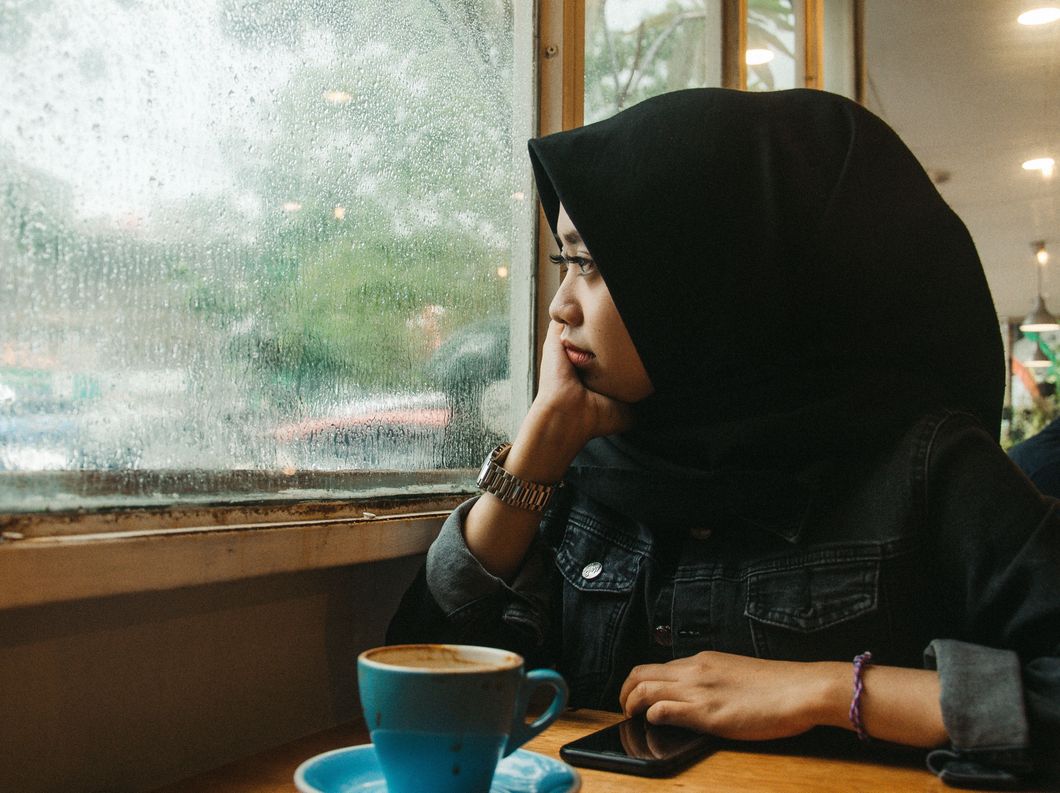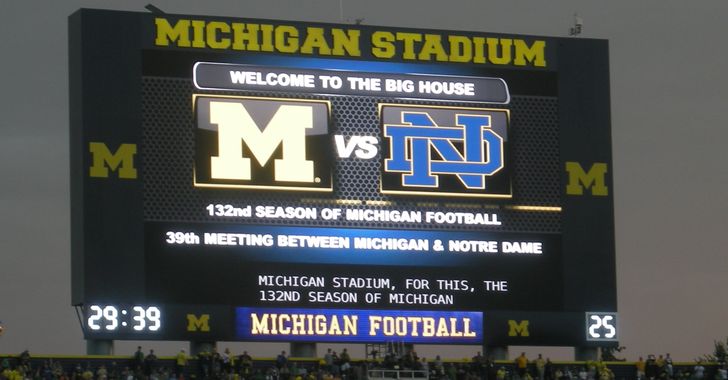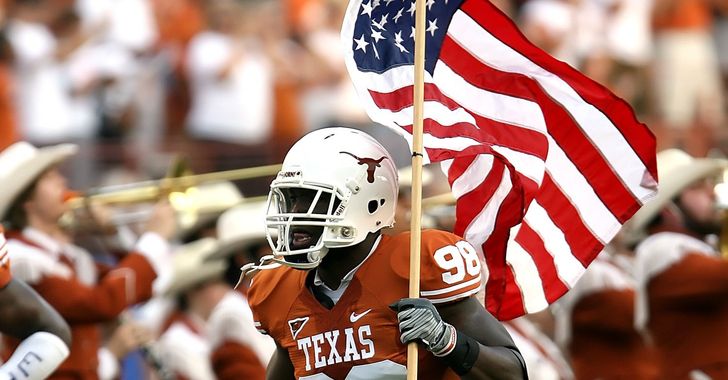Earlier this year, I had a part in starting a private interfaith dialogue group that would meet in an "Interfaith Room" inside the school chapel on Wednesdays. In the midst of crazy college life, I always looked forward to meeting for an hour to make sense of Judaism, Christianity, Islam, and what the future of religion may look like.
We were not the only ones meeting here. The Interfaith Room was used for a lot of faith-based organizations like us. I recall once attending a woman's Bible study there. Jewish life would meet there some times. Most notably, though, it was a designated safe place for Muslims on campus to perform their five daily prayers (salat) and weekly Friday prayer service (Jumu'ah).
I usually have classes held in the classroom across from the Interfaith Room since that is typically where they hold religious studies classes (this semester I'm taking semiotics and Buddhist ethics). Imagine my surprise walking to class on the first day and finding the hallway unusually busy… and that the Interfaith Room no longer existed.
Instead, where there once were rugs angled toward Mecca, the area was lined with shelves, stacked with Amazon boxes and bubble wrap. A huge line of students stood outside, waiting for their turn to receive packages. That's right: my college converted the Interfaith Room (aka the room designated for Muslim life) into a post office.
I should mention that I'm quite connected on campus. I know most of the individuals in the Religious Life department, not to be confused with the Religious Studies department which I'm also quite involved with. I'm close with the Muslim Student Union president, and many of the clubs members through my Interfaith study. I hadn't heard a thing about the conversion of the Interfaith Room.
I was confused and frustrated. By the grace of God, my Interfaith group had gone through a transformation in the last month where some of us (not me) were able to move on campus and host our meetings in a dorm. But what about the other handful of group studies? What of, specifically, Muslim life on campus? Why hadn't I heard anything from them? Did they know?
I texted various peers about this transition to understand if they were notified of the change ahead of time. The consensus: "The MSU was not notified beforehand." They were also frustrated. Understandably so.
One friend told me, "Turning the Interfaith Room into a post office took away what was already the only space that Muslims on campus could claim for religious purposes." Another said, "The Interfaith Room was the only place I felt comfortable going and I always hoped it would be empty and available… I wouldn't feel comfortable praying in just the lounge cause anyone could walk in."
Muslim students who can't afford to live on campus have nowhere safe to go now.
It's important to also note, that in Islam, once a prayer starts, it cannot be interrupted or paused (if the prayer is to be completed, it can be restarted later if it's an emergency), even if someone walks in. This could easily happen with other students, professors, or staff, if Muslims on campus are not given a safe place to pray.
A solution proposed after the fact was to move Muslim life into the classroom (where I have my semiotics and Buddhist ethics class) or office lounge. There are several issues with this, but let me highlight one: sometimes classes take place in that room. That's my classmates and me! Not too long ago, I was attending a make-up class (after Dorian hit us) when the campus Imam walked in, barefoot, searching for the prayer rugs. He had been promised the classroom we were using for Jumu'ah.
The Muslim Student Union was put into the lounge, where paintings depicting individuals were hung on the walls (this is a big no-no, since it is historically associated with idolatry). Furthermore, the schedule of prayers shifts throughout the year because of the changing sunrise/set schedule, which could make whatever arrangement they come up with not stable.
How could my university let this happen, while our campus verbally espouses values of social justice? To me, this wasn't just "a room" or a "necessary evil." It was blatant incivility, and an illustration of toxic American attitudes toward Islam, now on a personal level. It was a metaphor for what was happening to religious life in the west… an imperial cleansing.
"But they have to ship out mail somewhere, right?" I've heard this question over the course of the past week. While our campus goes under a few construction projects, I understand that individual facilities are inaccessible and that adjustments must be made. That's fair. But religious life on campus cannot suffer for it, especially when the size, privacy, and accessibility of the space matters. Actually, let me be more specific: Muslim life on campus cannot suffer for it — they are the primary victims of this situation.
I have yet to see my campus make similar adjustments to other minority populations on our campus: Hillel (Jewish life), LGBTQ, Latin American Students Association, and Black Student Union to name a few. They all still have spaces. They are still proclaimed loud and proud of our 'diversity' propaganda.
Last year our campus had a scandal regarding a Christian organization who wanted to incorporate as an official SGA-sponsored club. One issue: they had already been a club, and were banned from campus due to open LGBTQ discrimination. There was a backlash from students and faculty. The school newspaper published near-weekly updates on the situation. The organization didn't want to budge by signing the non-discrimination policy. In the end, they still were incorporated.
I remember that time as being extremely active. So many people rallied around to support their LGBTQ peers, and would not stop until that policy was signed (or better, that the organization would walk away again). They won.
I don't see that happening now. I see excuses. I see people arguing that their rights aren't as necessary as anyone else's rights. I see, "Well, they should just live on campus." I see, "Well, it's 2019." I see, "Well, I don't care about those Muslim people having a place to pray." I see brushing under the rug. I see turning a blind eye to the mistake they've made.
The way this all was handled was wrong and disrespectful to Muslim life on campus, not to mention an illustration of incivility on an organizational level.
This is not the first time I've seen Muslim students and Muslim life disregarded on campus, and if I'm honest, I doubt it will be the last.
I encourage members on campuses across the nation to stand up against this type of treatment toward minority populations — not in a mean-spirited and angry orientation, but one that supports problem-solving and understanding, one that advocates for social justice.









 Photo by
Photo by 









































